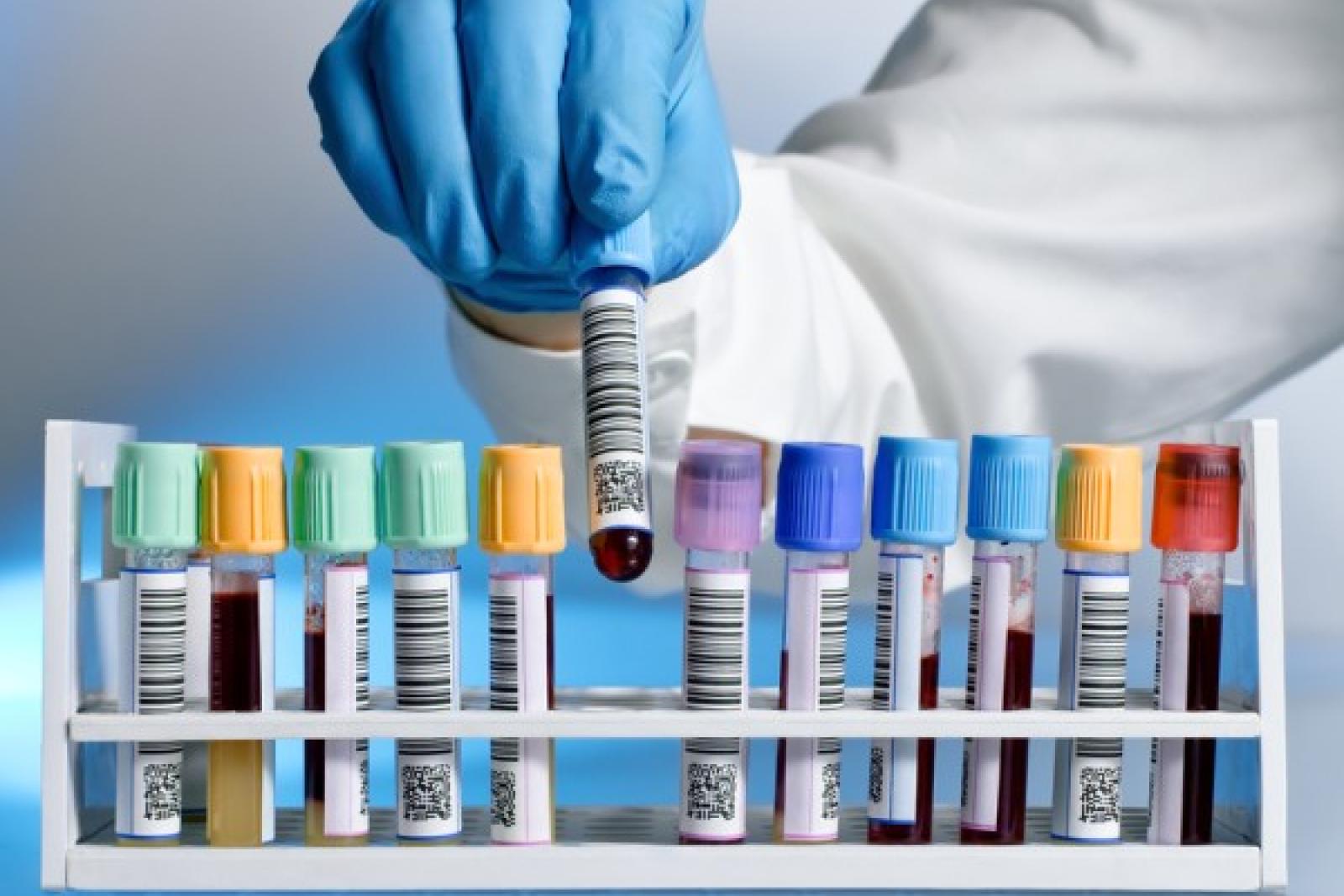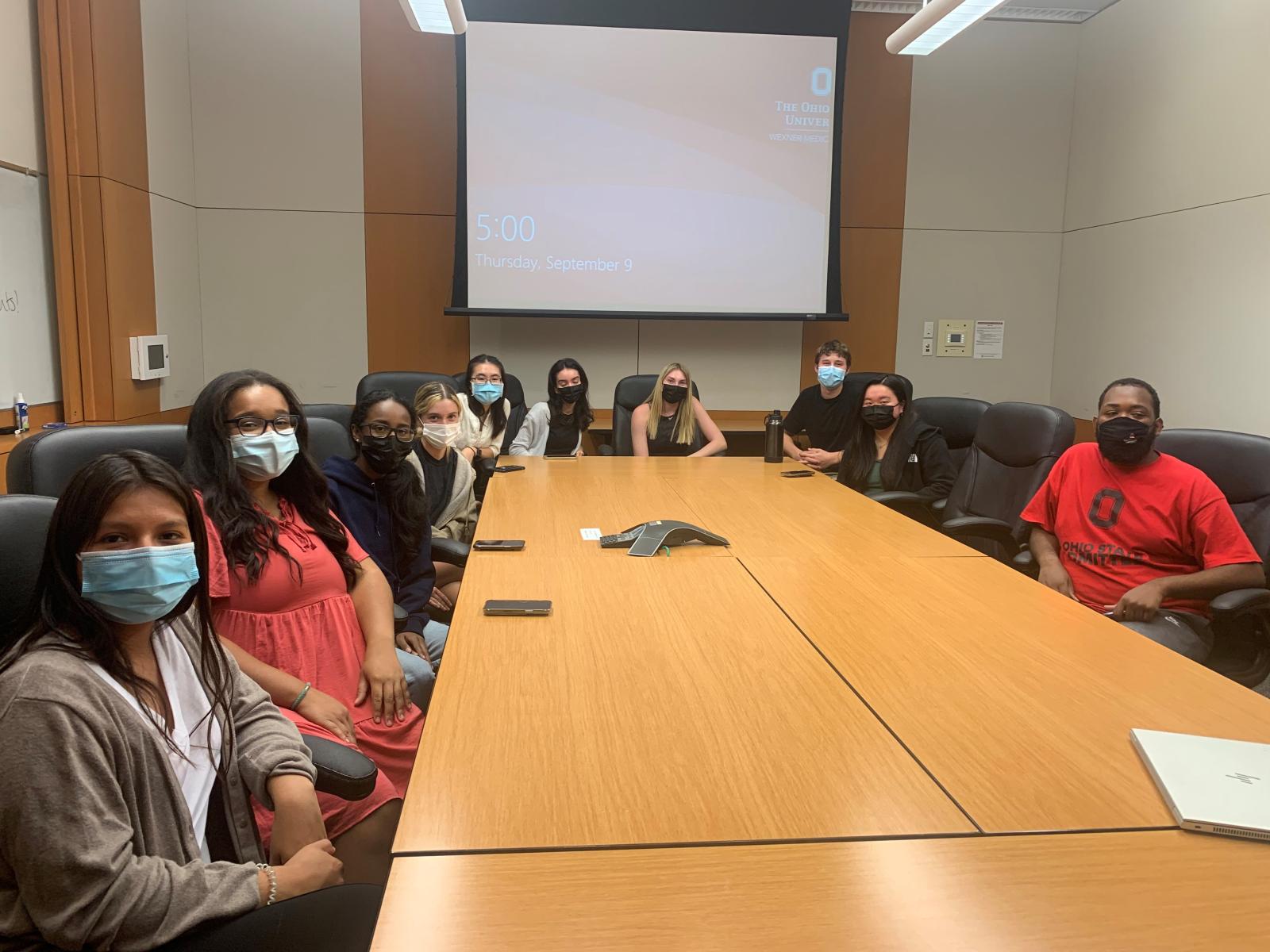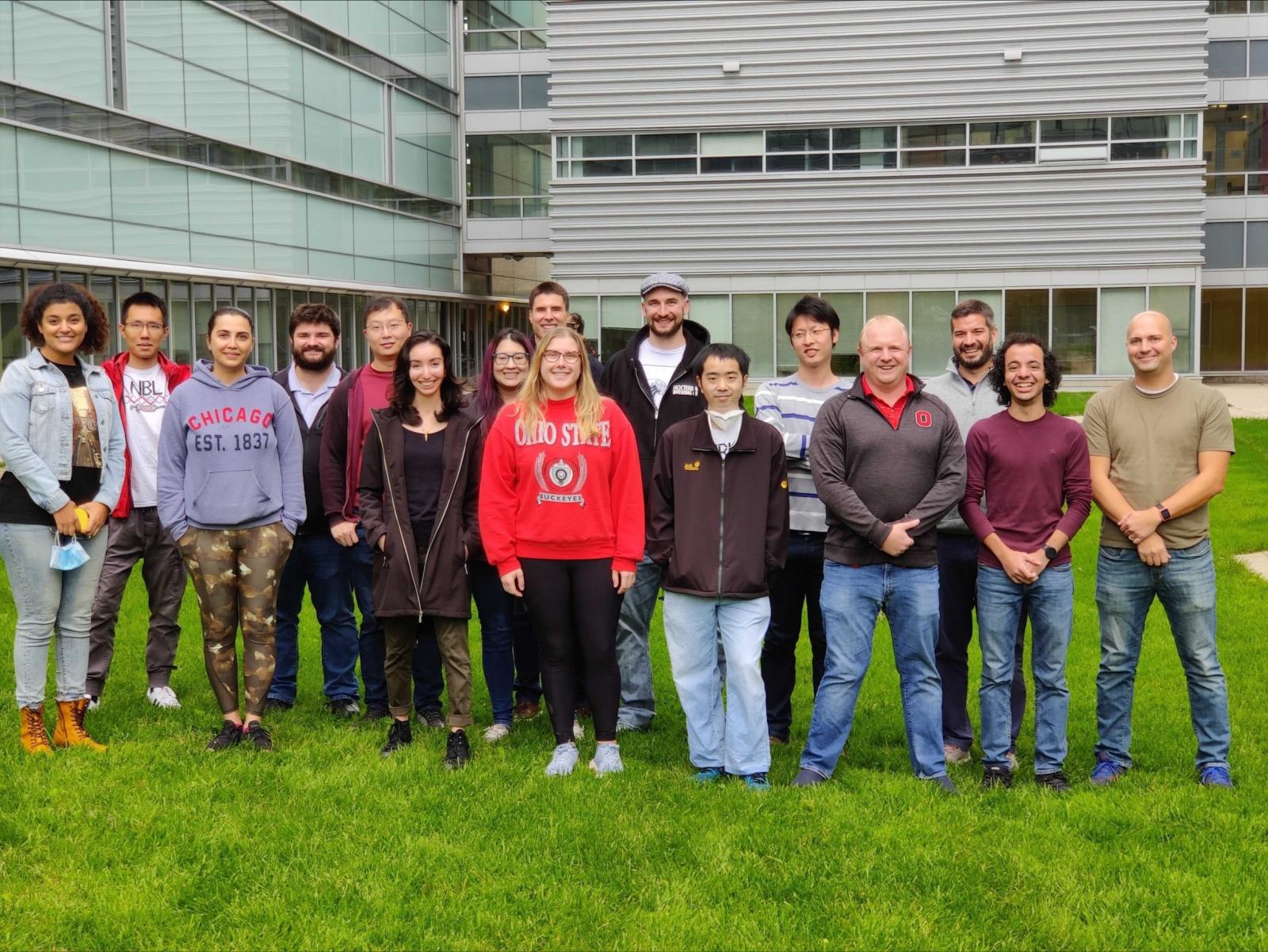Ohio State collaboration trains undergraduates to be the next generation of researchers

Students don’t have to wait until graduate school to step into a research lab. A collaboration at The Ohio State University gives undergraduate students a head start in cancer research.
The Cancer Research Experience for the Advancement and Training of Emerging Scientists (CREATES) program is a collaboration between the Ohio State College of Pharmacy and the Center for Cancer Mentoring, Education, Leadership and Oncology-Related Training (CAMELOT) at Ohio State's Comprehensive Cancer Center – James Cancer Hospital and Solove Research Institute (OSUCCC—James).
CAMELOT is both a programming and funding partner for CREATES and is led by Director Lawrence Kirschner, MD, PhD, and Administrative Director Kellee Gauthier, MPH.
CREATES provides students with experience in cancer-based research no matter their desired career path. Through this year-long program, students learn how to read, write, analyze and communicate scientific data while also learning how to set up and conduct cutting-edge experiments – all crucial skills most students don’t learn until they reach graduate or professional school.
“Generally, undergraduate students misunderstand what research is, equating it with past science coursework in which the answers are known and students are expected to match those answers or be penalized. However, the joy of research is that you’re uncovering the unknown via the scientific process. The CREATES program allows these young students to step into this new space in a very supportive way,” said Nicole Kwiek, PhD, assistant dean for undergraduate studies and associate professor at the College of Pharmacy.

In 2018, OSUCCC—James reached out to Dr. Kwiek to learn about Pills, Potions and Poisons, an annual summer camp that teaches high school students the fundamentals of drug science, and other professional development programs at the College of Pharmacy.
The discussion led to a conversation about Bachelor of Science in Pharmaceutical Sciences (BSPS) students who wanted more exposure to research. With the college’s strategic goal to create more meaningful undergraduate research experiences and enhance collaboration across the health sciences, the conversation paved the way for the development of CREATES.
“We want to support not only students’ development as scientists but also their professional trajectory, whether that is graduate school, pharmacy school, medical school, the pharmaceutical industry, etc. This program offers a unique opportunity for those interested in cancer-focused careers to get involved early and be mentored by world-class leaders in the process,” Dr. Kwiek said.
CREATES consists of three parts: research, mentorship and coursework.
Research
During the application process, students express their research interests. Based on the answers they give, they are paired with either a faculty member, post-doctorate fellow or graduate student conducting research relevant to their preferences. Undergraduate students serve on this research team for the entire academic year.
The research that students help with isn’t limited to finding new treatments; it covers the entire breadth and depth of cancer. Students can research the social determinants of health and how they relate to a patient’s diagnosis, how to best serve patients experiencing cancer, the cancer experience, or even create devices that deliver anti-cancer medication.
“Our goal is to help build the next generation of cancer researchers, whether they're interested in basic, translational, clinical, or population research,” Dr. Kirschner said. “There is still so much work to do, and we need energetic and excited young scientists to get involved.”
Students can complement the role pharmacy plays in cancer research by working on interdisciplinary teams. For example, in this year’s cohort, BSPS student Amani Djouadi is paired with Carlos Castro, PhD, a faculty member at the College of Engineering whose team works on nanotechnologies.
“I remember walking into the lab on my first day wondering if I was in the correct building, mainly because I didn’t expect it to be in a mechanical engineering building,” Djouadi said. “Most people would think mechanical engineering involves machines, engines and cars, but what Dr. Castro’s lab is doing is engineering at the nanoscale. The team I’m working with includes an immunologist, biomedical scientist and biomedical engineer. The different backgrounds that each team member brings creates a unique synergy that results in phenomenal solutions. I’m glad that I can also bring my perspective as a BSPS student.”

Mentoring and professional development
Every other week, CREATES students engage in mentoring workshops hosted by CAMELOT as a part of their professional development in the program. The workshops cover a variety of topics aimed at helping students reach their professional goals.
“We incorporate mentoring because there is so much more to success than just getting the work done,” Dr. Kirschner said.
Speakers include high-level cancer researchers who speak to the students about their journey, how they got to where they are and how to thrive in research. Some weeks, speakers provide tips on writing admissions essays for graduate and professional schools and speak on the application process.
Class-based learning
In addition to the research and professional development, two courses complete the CREATES experience.
- Intro to Pharmaceutical Science Research – taught by CREATES co-founder Chris Coss, PhD, assistant professor of pharmaceutics and pharmacology at the College of Pharmacy and Nick Denton, PhD, lecturer of pharmacy education and innovation at the College of Pharmacy.
This course helps students navigate research by introducing them to what pharmaceutical science research looks like in a variety of health science careers.
- Quest for a Cancer Cure - taught by Dr. Denton.
The Quest for the Cancer Cure course works to inspire undergraduate students by introducing them to best practices and leaders of the health care industry while giving them the foundation they need to find their role in the quest for a cancer cure.
Both courses are especially important because it gives students the foundation to succeed in a research environment while understanding emerging cancer therapies. Even if students choose a profession outside of research, it is critical that they know how to read and analyze scientific literature so they can best inform their patients on the latest treatments and preventative measures.
. . .
All components of the program work to empower students to enter the field of research and to get comfortable with graduate- and professional-level scientific literature and language.
“This collaboration represents an effort to identify students with an interest and cancer research early enough in their undergraduate training to facilitate their development into the next generation of researchers,” Dr. Coss said. “It is exciting to have this investment in undergraduate research training from both the College of Pharmacy and The James.”